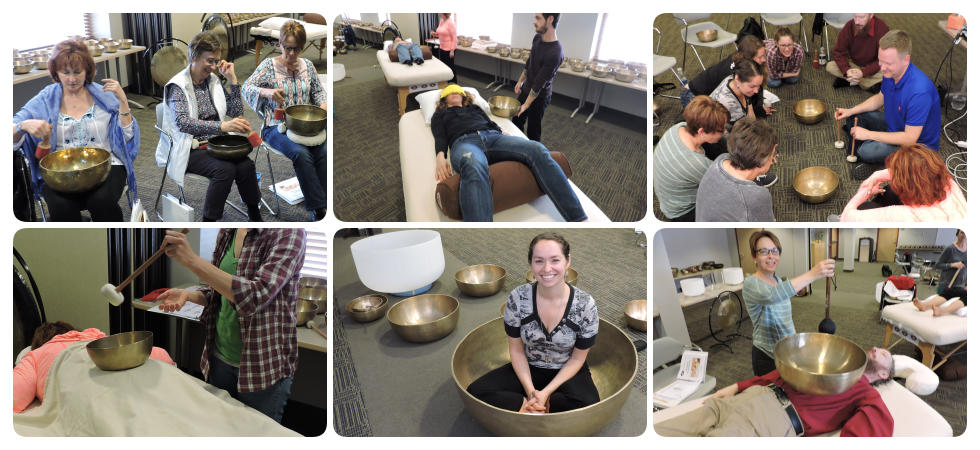Vibrational Sound Therapy (VST) has profound effects on the body and the mind. The VST method is above all a method of relaxation, and most people will reach this state of relaxation quickly, even during their first session. During a VST session the body will go through noticeable changes as it responds to deeper and deeper states of rest. Relaxation is not only a physical state but also a state of consciousness, and VST has very strong effects on alertness and perception. Relaxation during a VST session brings on the same kind of brain states as yoga, tai chi, and meditation.
Most clients will start to relax as soon as the session begins. Their muscles will lose tension, and they may even start to slip into the alpha brain wave pattern within the first minutes. The alpha wave pattern is associated with daydreaming and pre-sleep. At this point the client's breathing and heart rate will start to slow down, and the body will begin to absorb the waves of vibration into its tissues. The slowing of breathing and lack of muscle tension are both signs that the metabolism is slowing. Insulin levels will rise, and cortisol levels will fall. As the heart rate slows, blood pressure falls and arteries expand giving rise to a feeling of warmth. This relaxed state allows the body to repair itself instead of responding to outside concerns. The immune system is at its best when we are relaxed.
VST is so gentle and relaxing that almost all people will fall asleep at some point during the session. The theta brain wave state is associated with meditation, sleep, and deep relaxation. The delta brain state is a deeper form of sleep and is also associated with hypnosis and ritual. During normal sleep, people will oscillate between both of these states. The brain wave state of clients undergoing a sound massage will change naturally and in reaction to the modality as positions are changed and different bowls are introduced. Small tremors and shakes are common as people enter and exit the theta and delta brain rhythms.
Those who undergo a state of deep relaxation often report a feeling of mental freshness that they carry with them after the session is over. Relaxation and meditative states of mind have also been shown to increase the threshold for emotional response, meaning they can help us control our emotional responses to outside influences. Like other kinds of meditation, sound therapy can help us be more internally aware while being more present in the moment and more connected with our surroundings.

